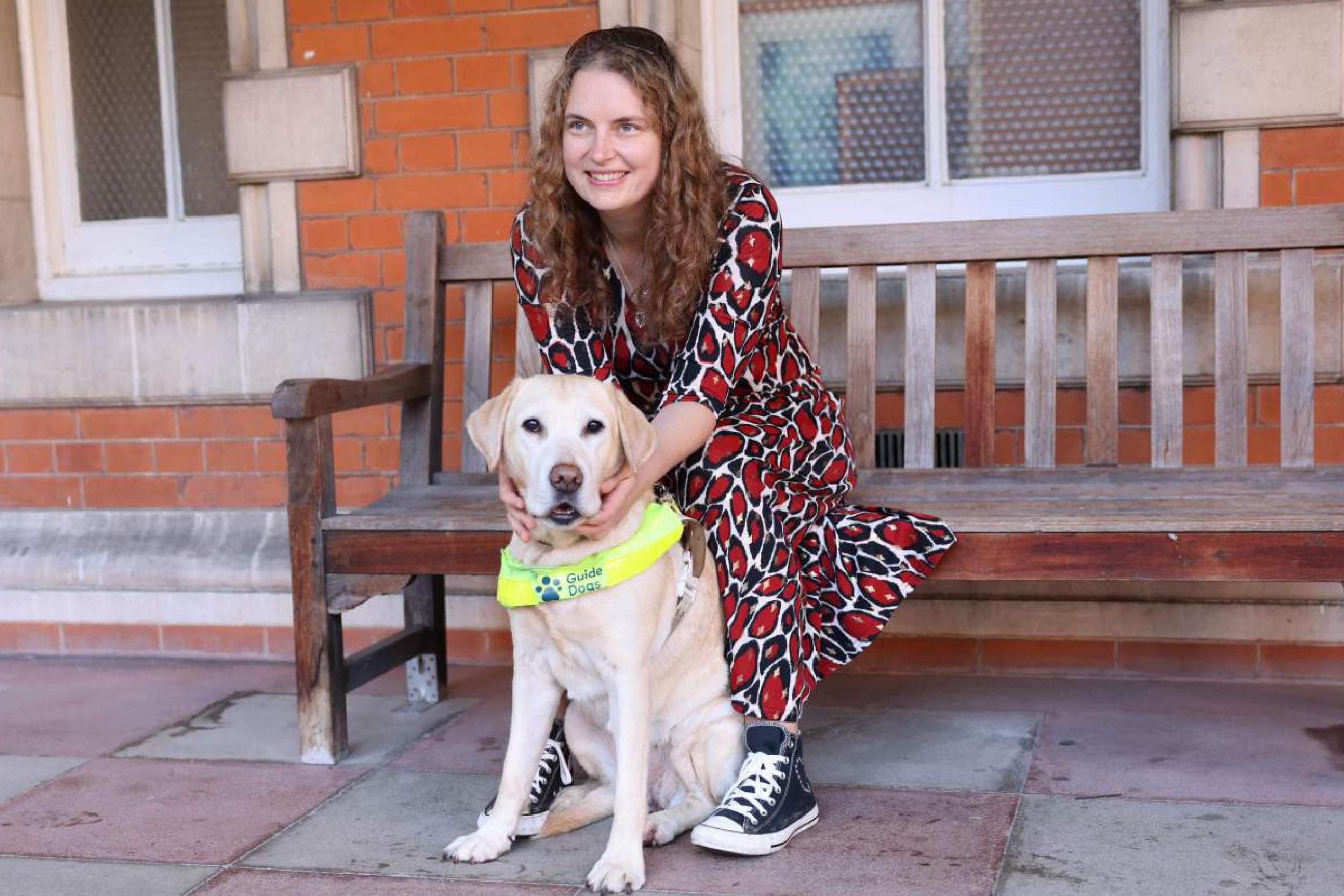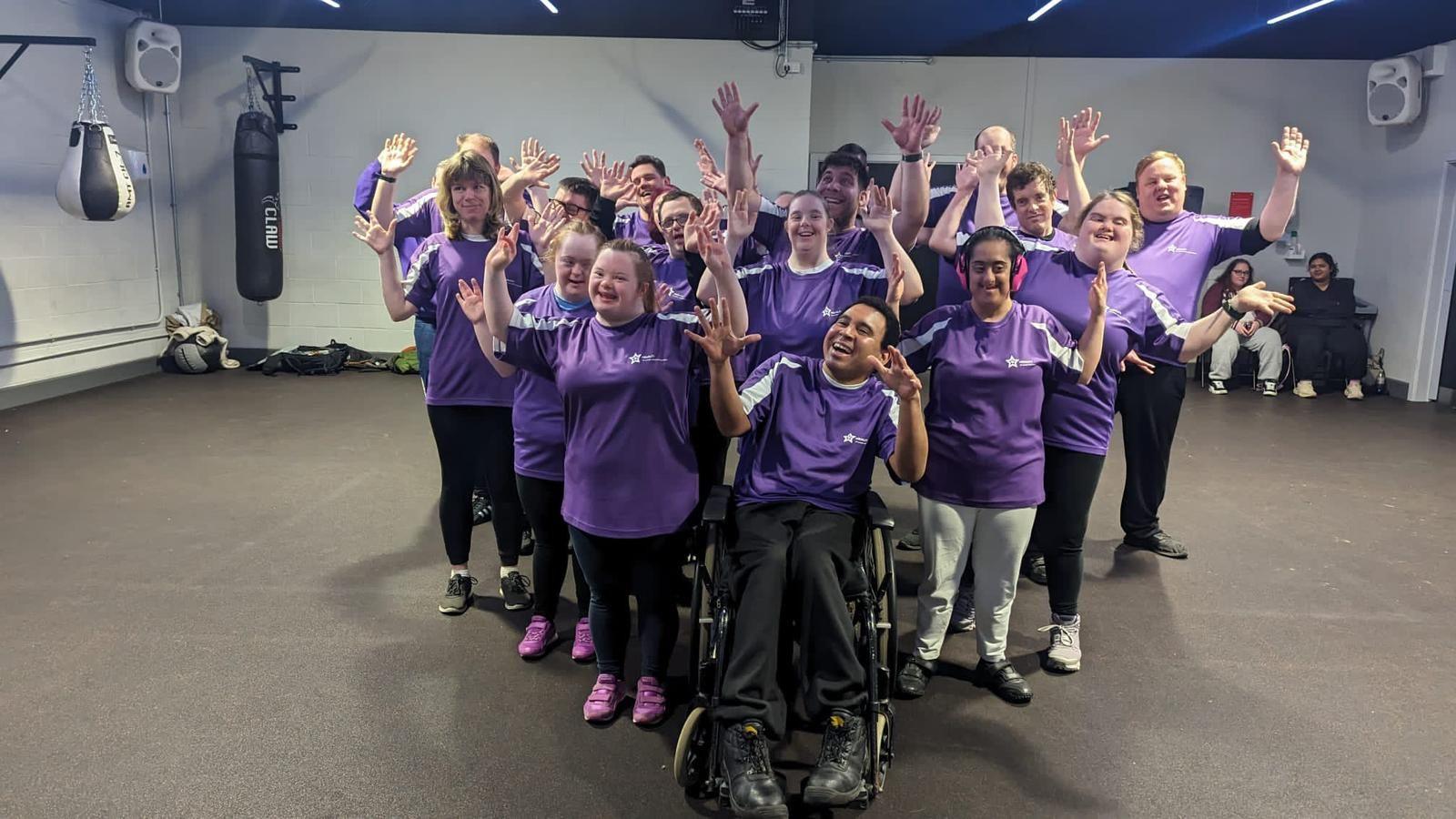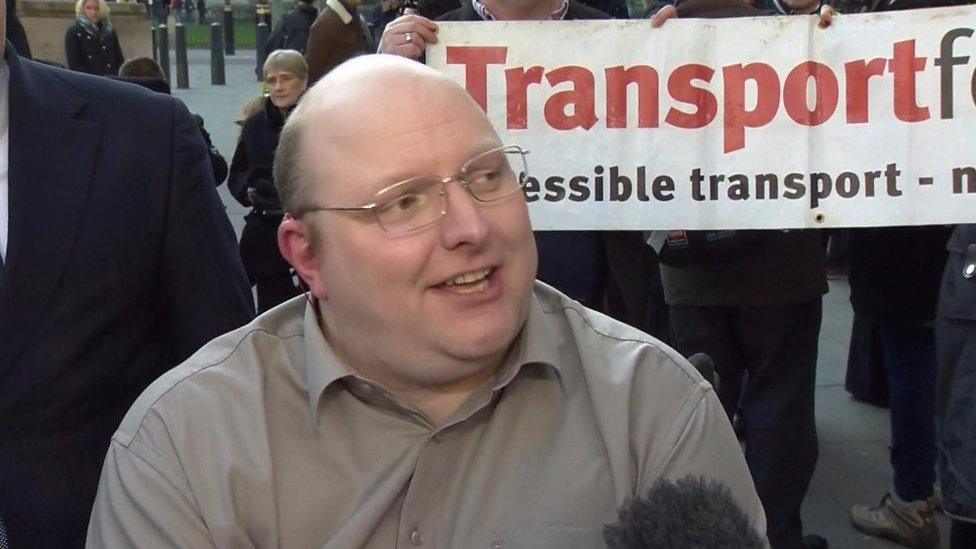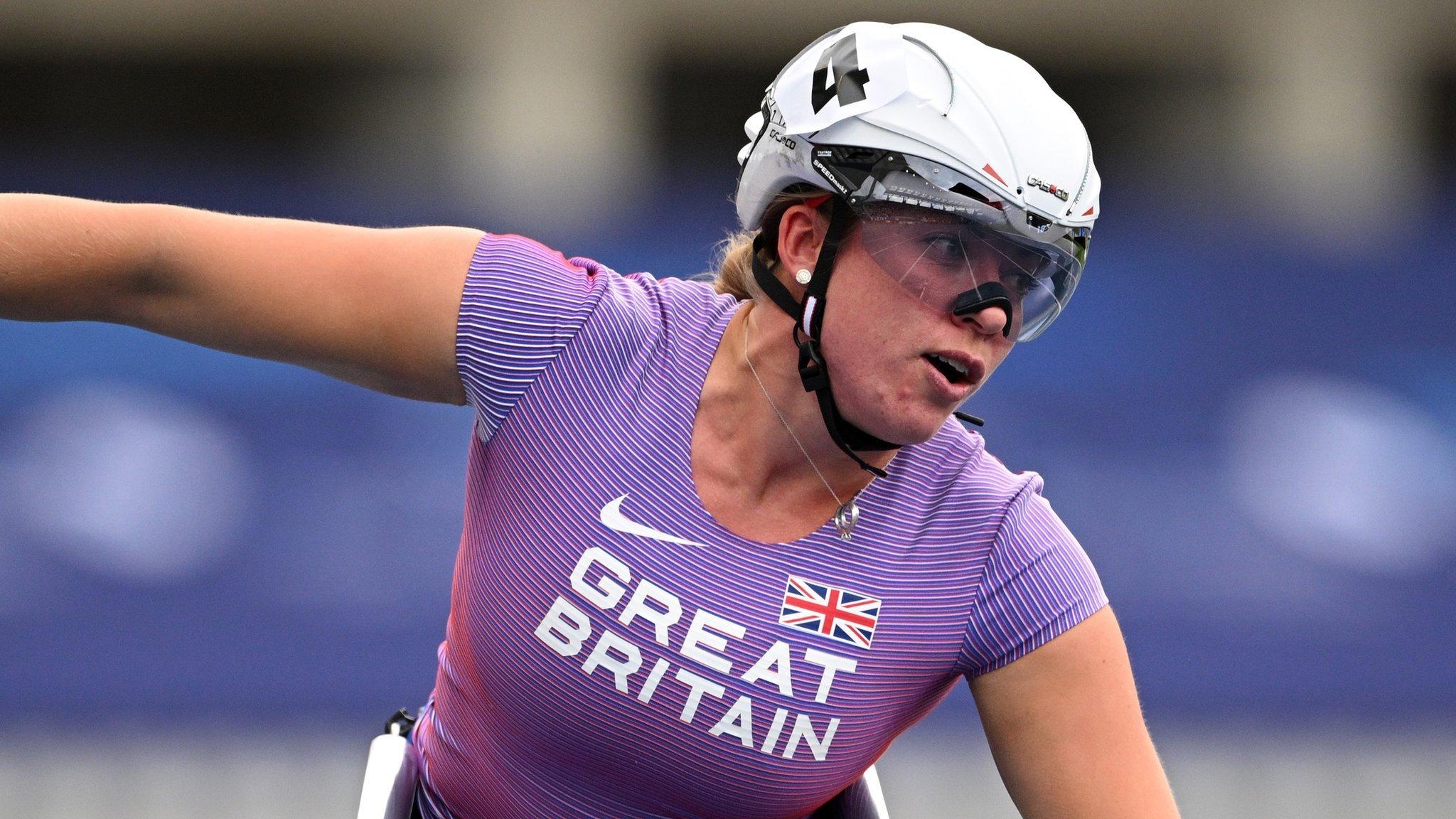Assistance dog refusal to be tackled by government

Anica Zeyen says she and her dog Lassie have been refused access to a host of different businesses and buildings
- Published
The government has set out its plans to protect customers with assistance dogs from being illegally refused entry to businesses.
The long-awaited Disability Action Plan (DAP) sets out 32 measures the government hopes will transform the lives of disabled people.
The proposals also include more accessible playgrounds, increased support for "aspiring disabled politicians", and a potential bid to host the 2031 Special Olympics.
But charities say the plans are "light on action" and that the government has abandoned some of its previous commitments.
Anica Zeyen was with her guide dog Lassie for more than eight years before he retired.
Anica says they have been refused access by museums, restaurants, supermarkets, taxis and even airlines before.
An access refusal is when the owner of an assistance dog, external, like a guide dog or psychiatric assistance dog, is told they cannot enter a business or access a service, or is challenged about their entry because they have their assistance dog with them - and is almost always illegal.
More stories
Student forced to use loan to buy own wheelchair
- Published1 February 2024
Disabled man refused taxi due to assistance dog
- Published3 February 2024
Labour pledges to extend equal pay rights
- Published5 February 2024
Anica says she has been shouted at by people refusing her access, and has even had people try to physically move her out of the way.
"My guide dog is supposed to give me independence, but those actions take a lot of the independence away again," Anica says.
She says it also affects her family, who often miss out on days out because of her being refused access.
The government says it will set up a new working group of representatives from assistance dog organisations to look into how to better educate businesses on the legal rights of assistance dog owners and simplify the process of reporting refusals.

Anica Zeyen says access refusals only emphasise her disability
The government said it was publishing the DAP following three months of consultation with more than 1,300 disabled people, their families and disability groups.
The plans also include:
A new fund to support disabled people who want to be elected to public office
British Sign Language (BSL) interpretation at all major press conferences and briefings from spring 2024
New research into emerging issues affecting disabled people
Improving understanding of the cost of living for disabled people
Exploring a bid to host and deliver the 2031 Special Olympics World Summer Games
The DAP sits alongside the government's National Disability Strategy,, external which is aimed at improving the everyday lives of disabled people.
The strategy was paused after the High Court ruled it unlawful based on a case surrounding the consultation process, but that decision was overruled by the Court of Appeal in July 2023.
Many disabled people have long been calling for the government to tackle the issues that affect their daily lives.

The Purple All Stars performance group, who all have learning disabilities, share messages of inclusion and support through their performances
In Hertfordshire, the Purple All Stars is a performance group of 21 adults with learning disabilities who use their routines to promote inclusion and help other disabled people better understand how to look after their everyday wellbeing.
Katie Trotter has been a member of the group for 12 years. She says getting around is one of the most common problems she faces and that she has struggled to get a bus pass, despite her learning disability.
Kate Harding, who leads the group, says members "support each other through tough times", but wants more awareness of the reasonable adjustments non-disabled people can make to help them.
'Light on action'
The charity Disability Rights UK says the DAP proposals are "light on action and big on more talking".
The organisation welcomed the commitment to support disabled people who want to be elected to public office, but said other government commitments, such as improved accessibility standards for new-build housing, were not included.
Mims Davies, the minister for disabled people, health and work, said the DAP would have an "immediate impact" while the government delivers "long-term reforms".
She said they were aimed at making the UK "the most accessible and importantly equal place to live in the world – so everyone can live their lives to the full and thrive".
Labour's shadow minister for disabled people, Vicky Foxcroft, said that despite its consultations, the government had still put forward "nothing that actually delivers a better life for disabled people".
Labour set out some of its own plans to tackle inequality on Monday, saying it would extend full equal pay rights to ethnic minority workers and disabled people if it wins power.
- Published28 July 2021

- Published26 January 2022

- Attribution
- Published16 January 2024
